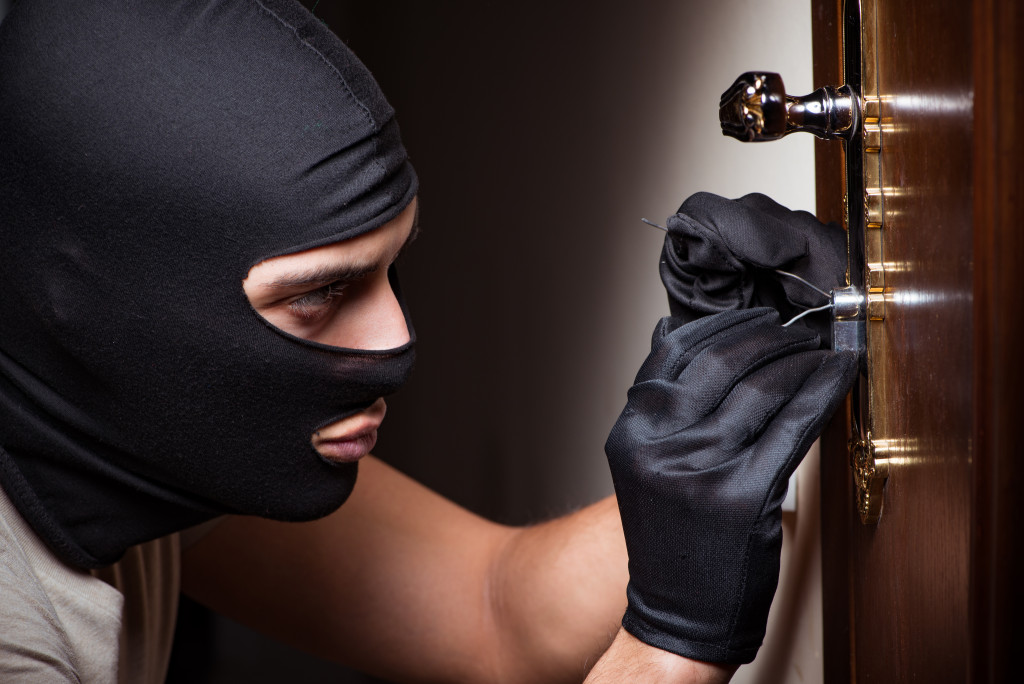Your home should be a safe place. Unfortunately, many hazards can put you and your loved ones at risk. According to the National Safety Council, unintentional injury is the fourth leading cause of death in the United States. Many of these injuries occur in or around the home.
There are several things you can do to make your home safe. First, create a safety plan. Please make a list of emergency numbers and post them near the phone. Plan how you will evacuate your home in the event of an emergency. However, every safety process starts with identifying the hazards that might happen in your home. Here are a few you should keep an eye on when trying to make your home safe.
Fire
Fire is a common hazard in the home. It can cause extensive damage and injuries, and even death. According to the National Fire Protection Association, the United States has 365,500 house fires yearly. These fires cause an average of 2,500 deaths, 12,900 injuries, and $5.5 billion in property damage.
There are several things you can do to prevent fires in your home. First, have a working smoke detector installed on every level of your home. Make sure you test the detectors regularly and replace the batteries when needed. Also, ensure all your appliances are in good working order and that cords are not frayed or damaged.
In a fire, remember to stay calm and exit the home safely. Never try to fight a fire yourself – leave that to the professionals. If you must evacuate your home, make sure you have a plan and practice it regularly.
Carbon Monoxide Poisoning
Another hazard to be aware of is carbon monoxide (CO) poisoning. This gas is odorless, colorless, and tasteless, making it hard to detect. CO gets produced whenever fuel gets burned, so any time you use a stove, oven, furnace, or other appliances that burn fuel, there’s a potential for CO poisoning.
According to the Centers for Disease Control and Prevention (CDC), more than 400 people die annually from CO poisoning in the United States. Many more are sickened by this gas. Symptoms of CO poisoning include dizziness, nausea, headache, shortness of breath, and confusion. If you suspect you or someone else has been poisoned by carbon monoxide, get outside to fresh air immediately and call 911.
Ensure all fuel-burning appliances get appropriately vented to prevent CO poisoning in your home. Have them serviced regularly, and never use a stove or oven to heat your home. Install CO detectors on every level of your home and test them regularly.
Theft

Breaking in and stealing your belongings is a hazard that can cause physical and emotional damage. According to the FBI, there were an estimated 763,100 burglaries in the United States in 2017. The average loss per burglary was $2,416.
There are several things you can do to prevent theft in your home. First, ensure all doors and windows are locked when you’re not home. You should also install a security system and use it when you’re away from home. If you have valuable items, keep them out of sight and in a secure location.
Unfortunately, your home might not even be safe when you’re there. According to the Bureau of Justice Statistics, nearly 4 million households experienced some form of property crime in 2017.
If you’re ever the victim of a break-in, don’t try to confront the intruder yourself. Leave the house and call 911 immediately.
Gas Leaks
Gas leaks are another hazard to be aware of in your home. These leaks can cause fires, explosions, and even asphyxiation. According to the U.S. Fire Administration, there are an estimated 30,000 gas leaks or natural gas explosions each year.
You can do several things to prevent gas leaks in your home. First, ensure all gas appliances are properly installed and vented. Have them serviced regularly to ensure they’re working correctly. If possible, you can get your home’s gas safety inspection certificate. This process can help keep your home safe from gas hazards, especially when you have a lot of gas-powered appliances.
You should also be aware of the signs of a gas leak. These include a hissing sound, an odor like rotten eggs, and dead or dying houseplants. If you suspect a gas leak, open all the doors and windows to ventilate the area and leave immediately. Do not turn any lights on or off, and do not use any appliances. Once you’re safely away from home, call 911 and your gas company.
Make Your Home Safe Today
There are plenty of hazards to be aware of in your home. But by taking some simple precautions, you can keep yourself and your family safe. Be sure to check for hazards and take steps to prevent them regularly. And if you ever find yourself in an emergency, remember to stay calm and call for help immediately. By following these tips, you can make your home a safer place for everyone.
